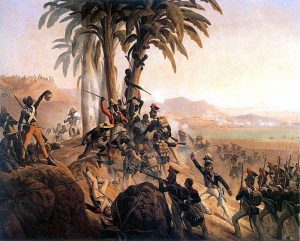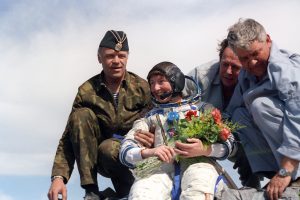August, 1939: The Third Reich, under the leadership of Adolf Hitler, is beginning to mobilize its military for an invasion of Poland. Previously, Hitler had expanded Germany’s borders to its old, pre-World War I borders with little repercussions from the Allied powers. This policy of “living space,” or Lebensraum, was used to unite Germany with Austria and annex the Sudetenland of Czechoslovakia in 1938, and then annex the rest of Czechoslovakia in 1939. But the future German Lebensraum would need more, and so German troops were called to the Polish border that August.1

As the troops prepared for the opening of the Blitzkrieg on Poland, the Wehrmacht physiologist Otto Ranke had realized the possible benefits of a popular medical stimulant called Pervitin for use in the army. Pervitin, marketed as a powerful stimulant, was an early form of crystal methamphetamine, and the drug’s ability to promote “wakefulness and alertness,” as well as induce a slight euphoria in its users, had caught the attention of the military. Ranke had authorized its deployment to the field troop’s ration kits as a small-scale test run of the drug’s effects on the soldiers poised to invade Poland.2
Reports from officers in the field on the drug’s effects were glowing. The quick conquering of Poland with minor losses was partly accredited to Pervitin. However, as the drug made the troops powerful fighters unlike any others ever faced, the side effects were also very noticeable. As the drug high wore off, heavy fatigue and withdrawal would set in, taking some troops out of the lines for up to two days. Profuse sweating, irritability, heightened aggression, and impaired judgement were just some of the side effects troops had to deal with. Regardless, the Reich viewed the drug’s positive attributes outweighed the side effects.3

With the successful invasion and annexation of Poland complete, Hitler had now crossed the line in the sand placed by the Allied powers. France and Great Britain officially declared war on September 3, 1939. The Western Front had now opened, and a complete naval blockade against Germany was in effect. With the medical reports from Poland being so good, the Wehrmacht decided to roll out Pervitin to the whole military, especially to the Luftwaffe, Germany’s Air Force.4
In April of 1940, the invasion of the Nordic States began in order to secure iron for the Reich and cut off an allied landing zone to Germany’s north. A month later, the Blitzkrieg would commence on the western front. Hitler simultaneously launched an offensive against France, Netherlands, Belgium, and Luxembourg. The incredibly short campaigns and low number of German casualties were, again, credited to the miracle pill Pervitin. However, the side effects of Pervitin and reports of soldiers abusing it were much more prevalent. Reichsminister of the Luftwaffe Herman Goering, and coincidentally one of Pervitin’s chief advocates, ordered the drug’s use to end in the military.5
In July of 1940, the beginning of the brutal air campaign by the Germans on the British commenced, known as the Battle of Britain. With the last major player of the allies being bombarded constantly by German sorties, a German victory in Europe seemed ensured. Despite Goering’s orders to cease use of Pervitin, Luftwaffe pilots used the drug completely unhindered by their superiors. The same applied to the Wehrmacht, who would find ways to get hold of the drug. By the end of 1940, it could be argued that Hitler’s war machine was hooked on meth.6
German Health Fuhrer Leo Conti, seeing Pervitin beginning to undo the ranks of the army and increasing dependence and abuse of the drug among the civilian population, made the drug illegal under the Reich Opium Law, effectively outlawing it—on paper, that is.7 Prohibition of Pervitin was sparsely enforced. Only the most fanatical Nazis would enforce the laws. With the outbreak of the war with Russia and the opening of the eastern front, use of Pervitin had actually increased among the soldiers as they marched towards Moscow. Operation Barbarossa, the Nazi plan for the invasion of the Soviet Union, would end up being a tremendous failure for Hitler, and it arguably assured an allied victory by surrounding the Germans on two sides, a mistake made before by Hitler’s predecessors in World War I.8

As supplies dried up and the Germans were pushed back further into Germany, use of Pervitin became sporadic. With German industrial locations made explicit targets of the Allied air campaign, simply producing anything in Germany on a large scale was neigh impossible. Troops would use it if they could find any, but in the same breath, finding any was very unlikely. It wouldn’t be until the end of the war that Pervitin would see wide scale production again.9
Methamphetamine is one of the most dangerous drugs ever created by man. With the lack of information and little understanding of side effects in drugs during the twentieth century, it was no wonder the drug caught on like wild fire. Couple that with the racial superiority complex of the Nazis and the search for anything to promote that image, Pervitin was exactly the tool needed to fuel the war, and a catalyst to bring it to an end.
- Gale Encyclopedia of World History: Governments, Vol 1, 2008, s.v. “Nazi Germany.” ↵
- UXL Encyclopedia of Drugs and Addictive Substances, 2006, s.v. “Methamphetamine,” by Barbara C. Bigelow. ↵
- Gale Encyclopedia of World History: Governments, Vol 1, 2008, s.v. “Nazi Germany”; Norman Ohler, Blitzed: Drugs in Nazi Germany (U.K.:Penguin Random House), 48, 50, 63. ↵
- The Encyclopedia of the Third Reich, 1991, s.v. by Christian Zentner and Friedemann Bedürftig. ↵
- The Encyclopedia of the Third Reich, 1991, s.v. by Christian Zentner and Friedemann Bedürftig. ↵
- Norman Ohler, Blitzed: Drugs in Nazi Germany (U.K.: Penguin Random House), 96, 100, 106. ↵
- Norman Ohler, Blitzed: Drugs in Nazi Germany (U.K.:Penguin Random House), 269, 273. ↵
- The Encyclopedia of the Third Reich, 1991, s.v. by Christian Zentner and Friedemann Bedürftig. ↵
- Norman Ohler, Blitzed: Drugs in Nazi Germany (U.K.: Penguin Random House), 296, 300. ↵



53 comments
Daniel Matheu Baldor
I really enjoyed this article. I had no idea and I have never heard about this. Before reading the article I thought that only a small part of the Nazis took this drug, but I did not expect that it was a drug that was given to everyone, although it is true that you can expect everything from the Nazis, especially from the commanders, that were giving drugs to every soldier that was going to the battle. The use of Pervitin could have helped the Nazis at the beginning, but after some years, they started suffering the consequences of taking drugs during a war.
Aaron Sandoval
This article was very interesting, I was drawn in by the title alone. Prior to reading this article, I did not see it as a possibility that drugs were used in combat. But after reading this article I could see why drugs would have been used and the impact that it could have on the battlefield. World War 2 is definitely a topic that history focuses on a lot, but it seems as if there are parts such as the use of Pervitin that are not focused on.
Santos Mencio
I was vaguely aware that German troops during the second world war used meth. However I didn’t know exactly how widespread it really was. It’s fascinating to think that the Germans attributed so much of their early successes to the drug. Overall a very informative article about a topic that is rarely if ever brought up when discussing Germany during the second world war.
Sara Guerrero
I knew of German warfare tactics and the extent they went to in order to win the war. I never imagined that they would supply and force their soldiers to consume meth and meth in general is an issue among people who live in poverty. It was upsetting that they didn’t provide information on the drug and these soldiers were unaware of what they were consuming.
Hali Garcia
Wow! I had no idea that drugs were used during the war to give the soldiers a boost, but after reading this article, it makes sense. Because of this drug, German soldiers were able to be more alert during battle but I am curious about the side effects. The side effects of Pervitin included aggressiveness, irritability, and judgement impairment, I wonder if there were any outbursts from soldiers or if there were any problems because of the side effects besides that fact that some of the soldiers could not be in line for two days. Great article!!!
Samuel Vega
I did not know about the drug use during the war; but I am no longer surprised by what Hitler and his officers did in the name of war. How could officers give the soldiers the drug Pervitin without their consent? They experimented with the soldier’s reactions and got them hooked on the drug. As fighting continued the drug was still used until production became limited. The soldiers then experienced withdrawal which caused more problems during the war. This was an interesting article and gave a different view of the problems associated with the war.
Sebastian Portilla
This doesn’t surprise me whatsoever. The Germans were brilliant in almost every aspect in the war. Their weapons, uniforms, and machinery were the best in the world at the time. Their arrogance and smug caught up with them in Russia which eventually led to the slow fall of the third reich. The Germans experiencing with drugs on their soldiers wasn’t even the half of it. The German scientists were constantly researching and testing many different experiments to find what they needed to fulfill the “furhers” demands. The Angel of Death aka Joseph Mengele was an example of a crazy driven scientist/doctor to find solutions through any means necessary.
Noah Wesolowski
It’s insane to think that the Germans leaders were forcing their own soldiers to consume Methamphetamine to become more alert on the battlefield. Unfortunately they did not fully understand the drug and got most of their men hooked on meth for the rest of the war. Even though they leaders tried to ban the use of the drug the soldiers still found ways to obtain it.
Vanessa Sanchez
This article has taught me a lot, i didn’t realize the Nazi Soldiers where oppressed also by Adolf Hitlers Cruelty some of them were forced to take in a form of meth called pervitin, i am confident the Allied States would have still one even though the Nazis where methed up, because meth gives you extra strength.
Michael Leary
Very interesting article, I had heard a bit about this drug on a documentary before and its effect on the German soldiers. It is interesting how they were consuming it in large quantities in the early stages of the war, but, as the war dragged on, the supplies began to dry up. It seems as the lowered production of the drug may have had an effect, along with other factors, on the Eastern front as the Germans ended up in retreat.